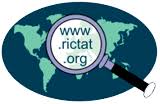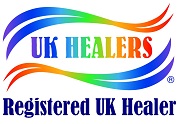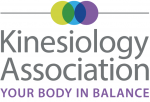Holistic Health Assessment or Health MOT is an approach to evaluating an individual’s well-being that takes into consideration multiple aspects of their physical, mental, emotional, and spiritual health. It involves looking at the person as a whole rather than just focusing on isolated symptoms or conditions. A holistic health assessment typically involves gathering information about an individual’s medical history, lifestyle, diet, exercise routine, stress levels, sleep patterns, emotional state, social support, and other relevant factors. It aims to provide a comprehensive understanding of the person’s overall health and identify any imbalances or areas that may require attention in order to achieve optimal well-being.
Here are some key components that may be included in a holistic health assessment:
- Medical history: Gathering information about the person’s past and current medical conditions, medications, surgeries, and allergies.
- Lifestyle and habits: Assessing the person’s lifestyle choices, such as diet, exercise, sleep patterns, tobacco and alcohol use, and other health-related behaviours.
- Emotional and mental health: Evaluating the person’s emotional well-being, stress levels, coping mechanisms, and mental health history, including any symptoms of anxiety, depression, or other mental health conditions.
- Social support: Assessing the quality of the person’s social relationships, including family, friends, and community connections, as social support plays a crucial role in overall health and well-being.
- Environmental factors: Evaluating the person’s living and working environment for potential health hazards, such as exposure to toxins, pollution, or other environmental factors that may impact health.
- Spiritual health: Considering the person’s beliefs, values, and practices related to spirituality or religion, as these can influence overall well-being.
- Body systems: Assessing the functioning of various body systems, such as cardiovascular, respiratory, digestive, immune, and others, to identify any potential imbalances or areas of concern.
- Prevention and health promotion: Identifying opportunities for health promotion and disease prevention through education, lifestyle changes, and other preventive measures.
Based on the findings of a holistic health assessment, a personalized plan may be developed to address any identified imbalances and promote optimal health and well-being. This may include recommendations for lifestyle changes, stress management techniques, dietary modifications, exercise routines, emotional support, and other interventions that address the person’s physical, mental, emotional, and spiritual health. It’s important to note that holistic health assessment should be carried out by qualified healthcare professionals trained in integrative or holistic approaches to care.
By tackling our health head-on and holistically, we can certainly be a more productive, happier and healthier nation – and it is the responsibility of all of us to ensure this, employers and employees alike. We don’t need to be filling our bodies with medication to survive and thrive. Preventative holistic healthcare is the medicine of the future. When you feel good, everything else benefits too. You’re more alert, engaged and energetic; you also feel more positive about yourself.
Healthcare isn’t just about looking at the symptoms and masking these with drugs as much as medicine can seem. Instead, it’s about getting to the root of the cause and finding ways of eradicating this holistically instead of understanding that every individual is different. So many areas of our life feed into our health, many of which we don’t fully recognise or understand until our health is properly broken down in this way.
To get started with servicing your body, just like you would your car, book your free 30-minute consultation.










